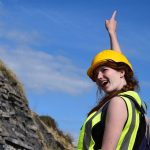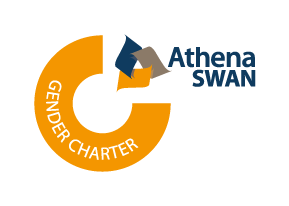The committee met again on 12th October after a short summer break. We had lots to catch up on, and our conversation focussed on organising the staff culture survey, which we hope to be available in November. Staff members will be informed when the survey is available. We also discussed the potential of having undergraduate student representation on the committee, to promote inclusivity across the university.
With the start of a new academic year, we also have several member changes. I, as the postgraduate representative, will be stepping down from my role. I have thoroughly enjoyed being a part of the group for the past few years, but as my PhD comes to an end, it felt time to step down and allow a new student the opportunity to be involved in the EDI committee.
We also have a change in EDI committee chair. Jenny Dunn will be stepping down from her role, although she remains as a member of the committee. She says “I have very much enjoyed the challenge of broadening the remit of the Athena Swan committee to begin to encompass multiple facets of diversity within SLES, over the past couple of years. I’m proud of the achievements the new EDI committee have made during this time – re-establishing the Staff Culture Survey, developing the new Student Culture survey, introducing our mentoring scheme, and not least re-gaining our Bronze Athena Swan departmental award, to name a few. I look forward to staying involved with the EDI committee under Iain’s leadership, and I am certain he will do a fantastic job of taking the committee forward!”
And with that, we welcome Iain Stott into the role as EDI chair. He says “I am really looking forward to taking on the lead role for Equality, Diversity and Inclusion within the School of Life and Environmental Sciences.
Being a gay/queer person working in academia, EDI is something that has been very important to me since early in my career. The classic, basic problem of lacking role models like myself meant I found it difficult to visualise and navigate unique challenges within and outside of work, as part of a career and life outside heteronormativity. Conversely, my considerable privileges as cisgender, mostly male-presenting, white and Northern European became more apparent, as did the need for people with less privilege to have opportunities, a voice and agency over their careers and lives.
I’ve now worked in EDI for a long time in various spheres and particularly within LGBTQ+ spaces. I’ve met a huge diversity of wonderful people, learned a great deal, and I hope imparted some wisdom of my own. There are a great deal of systemic issues for universities and academia to solve and yet identify, but I hope at least that we’re getting to the point where the basic issues of role models, awareness and agency are beginning to change.
Jenny did a fantastic job revitalising the SLES EDI committee and spearheading the successful Athena SWAN bronze application we were awarded earlier in the year. I’m very grateful to be taking over at a time where there is a clear path forward. I hope that I, alongside all other staff and students working within EDI, can help SLES and the university grow as a yet more diverse, inclusive and welcoming place to be.”
Thank you for your hard work and dedication Jenny – you will be missed – and welcome Iain! We are excited to see the innovation and perspective you bring and the direction you take the committee in moving forward.



